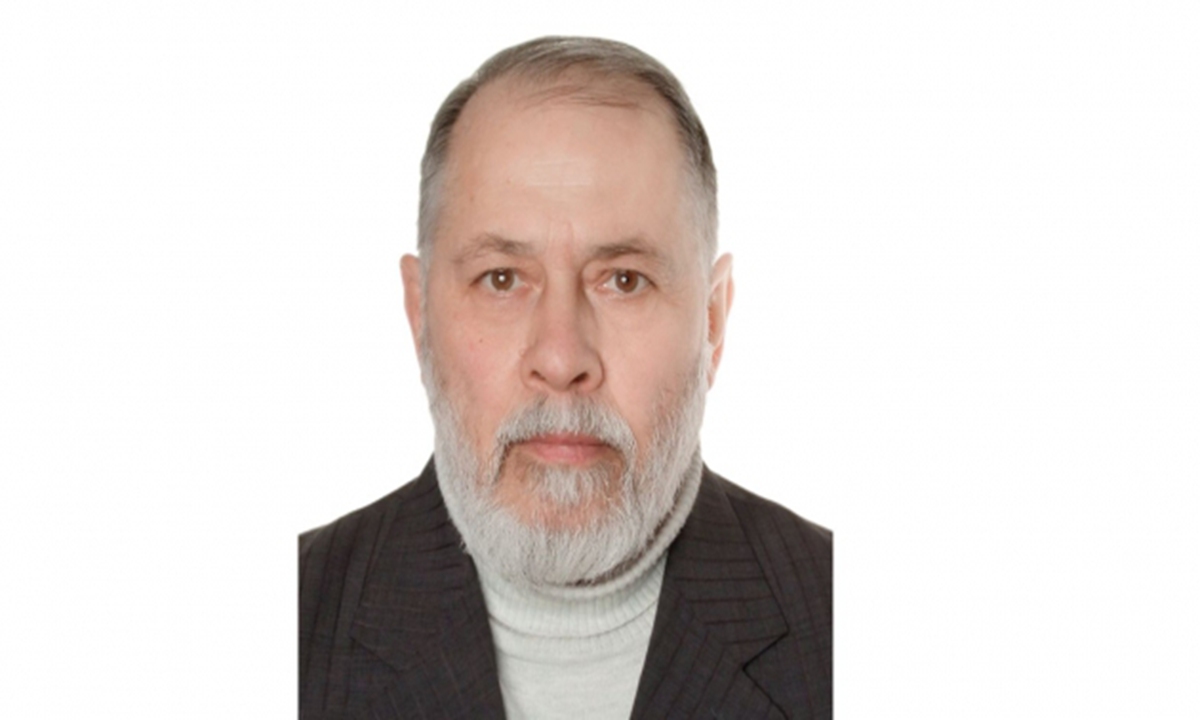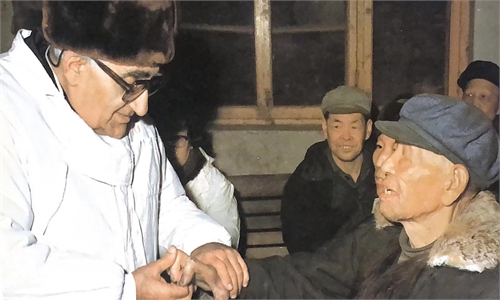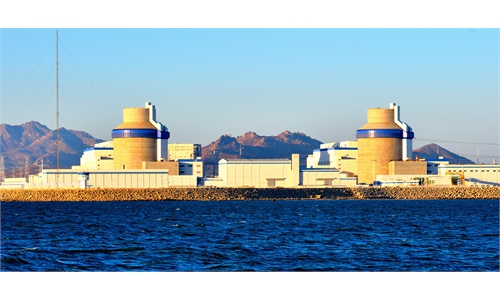
Photo:VCG
Editor's Note:
China has had an epic decade since 2012. Particularly in the last five years, which have been momentous and extraordinary, the country has successfully dealt with major challenges including turbulent developments in the Hong Kong Special Administrative Region and the COVID-19 epidemic. The 20th National Congress of the Communist Party of China (CPC) has laid out plans for the strategic missions and major measures in the next five years, getting the efforts to build a modern socialist country in all respects off to a good start.
In a recent interview with Global Times (GT) reporter Xia Wenxin, Russian political scientist Vladimir Pavlenko (Pavlenko), who is also a columnist for Russian news agency REGNUM and research fellow at the Moscow-based independent public scientific organization Academy of Geopolitical Problems, talked about how he views China's future after the 20th CPC National Congress, the comparison between Western and Chinese politics and the fate of Western hegemony.
GT: Which achievement of China's development in the last decade has impressed you the most?
Pavlenko: The main achievement that makes the Chinese experience an asset to humanity as a whole is the country's victory over absolute poverty. For a country that endured a "century of humiliation" and then almost half a century of wars, with a population of 1.4 billion people, reaching the level of "moderate prosperity" is not a quantitative, but a qualitative breakthrough.
As for global significance, China's success has dispelled the myth about the "ineffectiveness" of socialism, on which the West has pushed after the collapse of the Soviet Union. The whole world, especially developing countries, which are the future, have seen and been convinced that there is no contradiction between economic planning and the market - they can complement each other under competent, responsible leadership. The planning part is the strategy, and the market is the tactic. This is the secret of the success of China's socialist market economy.
There is another important success, which, in my opinion, is underestimated among the experts: The combination of socialism and the market ensures the successful adaptation and functioning of the economies of regions "reunited" with the People's Republic. The successful experience of integration based on the principle of "one country, two systems" in Hong Kong and Macao will serve as a model for Taiwan.
In addition, flexibility in applying economic planning and market-based instruments played an important role in the breakthrough development of regions suffering from problems, particularly the Xinjiang Uygur Autonomous Region. China has learned how to balance the planning and the market while keeping the "commanding heights" in the hands of the state. And this Chinese "know-how" makes an important contribution to the collective experience of global socialism.
Another major achievement of China, which is especially relevant against the background of the Soviet Union's failure, is the effective fight against corruption. Like the late Soviet Union era, China was faced with corruption before current Chinese President Xi Jinping came to power. But unlike the Communist Party of the Soviet Union, the CPC found the political will and determination to crack down on corrupted party members in a way that restored the party's credibility with the people. The work report of the Central Commission for Discipline Inspection is the second most important one on the agenda of the CPC National Congress after the political report of the Central Committee, and this says a lot. Socialism has no "insurmountable," "objective" dead ends; all problems are subjective. They are difficulties in the process of growth, and can be overcome by competent leadership under the support of the masses.

Vladimir Pavlenko Photo:Courtesy of Pavlenko
GT: What significance does the recently concluded 20th CPC National Congress have for China's future development?
Pavlenko: First of all, the Congress discussed and summarized the 10 years since 2012, beginning with the 18th CPC National Congress, which in China considers the starting point of the "new era." The main conclusion, as it appears to us in Russia, is the recognition of socialism with Chinese characteristics as the optimal, most effective development model for China in this era. This model works in China, unlike what the critics of the Chinese experience claim. This is because China addresses its current development issues from a pragmatic position of economic expediency, but holds a firm understanding of what should be prioritized in active state social policy.
The importance of the 20th CPC National Congress also lies in the fact that the event clearly articulated and approved the main landmarks of China's future trajectory, confirming the invariability of the strategic concept of the "two centenary goals." Very serious conclusions were drawn from an in-depth analysis of the failures of socialist construction in the Soviet Union. It is clear, for example, that in China, they do not strew slogans or force political reforms. Instead, they move forward systematically, step by step, creating what is called the material and technical basis of socialism. Production relations in China follow the development of productive forces; this order is strictly maintained, and no distortions that threaten the imbalance of economic and social factors are allowed. China has also maintained fairness in the distribution of both material goods and responsibility for development. In this sense, Xi's "common prosperity" course, which includes big business in solving national problems, is reasonable.
On this basis, it seems justified and, most importantly, realistic for China to basically realize socialist modernization by 2035. Thus, as emphasized at the 20th CPC National Congress, the necessary prerequisites will be created for the success of the "second centenary goal" by 2049 - the establishment of a powerful, fully developed socialist country.
GT: You recently wrote that the results of the 20th CPC National Congress also have a global significance: "It is clear that the Western system of values has completely outlived its usefulness and that it is futile to continue to rely on it; we should talk in our own language, not that of others." Can you elaborate on this?
Pavlenko: Beginning with the collapse of the Soviet Union, capitalist imperialism in the West has started to malignantly degenerate into globalism. The concept of "ultra-imperialism" was expounded by the German Social Democrat Karl Kautsky in 1914. Vladimir Lenin saw in such a phenomenon the threat that the collective West generally poses in colonizing non-Western countries and peoples. Breaking with European opportunists and launching a struggle against them, the leader of the October Revolution gradually came to another important conclusion about the peculiarity of socialist revolutions in non-Western countries, both in Russia and the East.
Based on these conclusions, the Soviet Union adopted the concept of "socialism in one country." Refusing to follow the steps of the European "ex-Marxists," the Russian and, later, Chinese communists adopted and put into practice the principle of upholding national and even civilizational specificity. Ignoring such characteristics will be threatened by capitalist restoration.
Only socialism can save the future: Unlike globalism, socialism is able to combine scientific, technical, and technological progress with the interests of a broad majority of the people. China, together with a number of other socialist countries, clearly demonstrates how this is done, and the Chinese experience is unique and important for humankind. To the skeptics in Russia who argue about Chinese socialism, I always suggest imagining what a nightmare today's world would be without socialist China. Its existence and success create an enduring alternative to globalism. And it gives the people of the world a choice.
GT: In contrast to short-sighted Western politics, which revolve mainly around elections, the CPC's governance has demonstrated superior stability and foresight. What does this mean for today's world, especially in the face of many uncertainties?
Pavlenko: The immediate horizon of strategic planning, declared by the 20th CPC National Congress, extends for more than a decade, up to 2035. This is associated with the strength and reliability of China's political system, which has several important advantages over the systems of the West.
The freedom advocated by bourgeois politicians depends entirely on, in Lenin's words, the "moneybag." All recent US elections, including some "dead souls" getting elected in Congress recently, clearly demonstrate this. And Karl Marx pointed out that the bourgeoisie holds power with two hands, passing it from one to the other and back again. But both hands are ruled by one head, a single conceptual center, where decisions are made and enforced through the two-party system.
With debates, scandals, special propaganda effects and so on, noisy election campaigns are held to distract the masses' attention from these manipulations and create the impression that elections decide everything. In reality, politicians are puppets, totally dependent on funding and the media. And these issues are run by the conceptual center - the very "head" that moves the "hands" - in their own interests, reflecting the interests of the ruling bourgeois class.
In political systems with a vanguard party, as in the Soviet Union and China, power is not in the hands of "conceptual centers," but the ruling party, which exercises that power on behalf of and in the interests of the people. Thus, the level of public trust in the government depends on its trust in the party: The Communist Party of the Soviet Union lost power when it lost its confidence in the Soviet people.
In China, especially under Xi Jinping, the situation is different. Therefore, if the CPC National Congress approves the country's development strategy and the public supports it, this means a high level of trust in the CPC, which, according to estimates by some Chinese sociologists, is at about 95 percent. Social and political stability is a derivative of such a trust.
GT: Russian President Vladimir Putin recently noted that "we are standing at a historical frontier: Ahead is probably the most dangerous, unpredictable and, at the same time, important decade since the end of World War Two." How do you see the future of Western hegemony in the next decade?
Pavlenko: The leaders of our two countries agree entirely with each other on assessing the unprecedented changes that humanity is experiencing and the reasons behind them. Chinese President Xi Jinping has kept reminding us of changes in the international order that have not been seen in a century. Any change of this magnitude involves turbulence and shaking the foundations of the global order.
But this is only one facet of the situation. There is another fraught with grave danger. The globalism promoted by the US-led collective West, which advocates universal "unification," is being countered by other nations. Non-Western countries and peoples want to preserve their own identity and sovereignty, which globalism cynically rejects and tramples upon. The contradiction between globalism and statehood in the current context is as key as the contradiction between socialism and capitalism during the Cold War.
However, the main problem is that the West is not ready to cede global dominance and move to have fair relations with the outside world. Therefore, instead of stimulating development through competition, the US has adopted the practice of hybrid warfare. And the purpose of it is not to get ahead of the opponent, but to weaken or even bring it down in destructive ways - pressure, containment that implies the inhibition of development, unilateral sanctions, trade wars, and so on. And at the extreme end of this chain is military confrontation.
The neocolonial nature of the existing world order that Xi and Putin talk about is due to the West's monopolization of global markets and access to resources. And once losing the exclusive advantages, the West will inevitably have to say goodbye to the idea of "the end of history" on its terms and retreat into the area of its historical habitat - Europe and, conditionally, North America.
The West is not ready for this; hence there are rattling of weapons, the build-up of tension, massive arms supplies to Ukraine and the island of Taiwan, the creation of a network of military bases all over the world, "humanitarian" interventions, military provocations, and so on.
Personally, I am sure that if the West decides that it needs to unleash a war of any intensity, including nuclear, to maintain its leadership and is confident of impunity, it will do so. The West has no moral or other constraints except the fear of guaranteed retaliatory destruction. The West seeks to establish by force the global dictatorship of the dollar and the Western transnational banks and monopolies. This means that it should not be given such a chance.
And this requires the maintenance of a global balance of power, so that the military-economic power of the West is balanced by an alternative one, which in this case, is devoid of aggression and serves as a guarantor of global stability. The only such option for humanity remains the strategic partnership between Russia and China. Individually, each of our countries is weaker than the US; but together, we can balance it and, in general, Western power and ensure peace on our planet.


